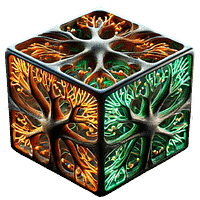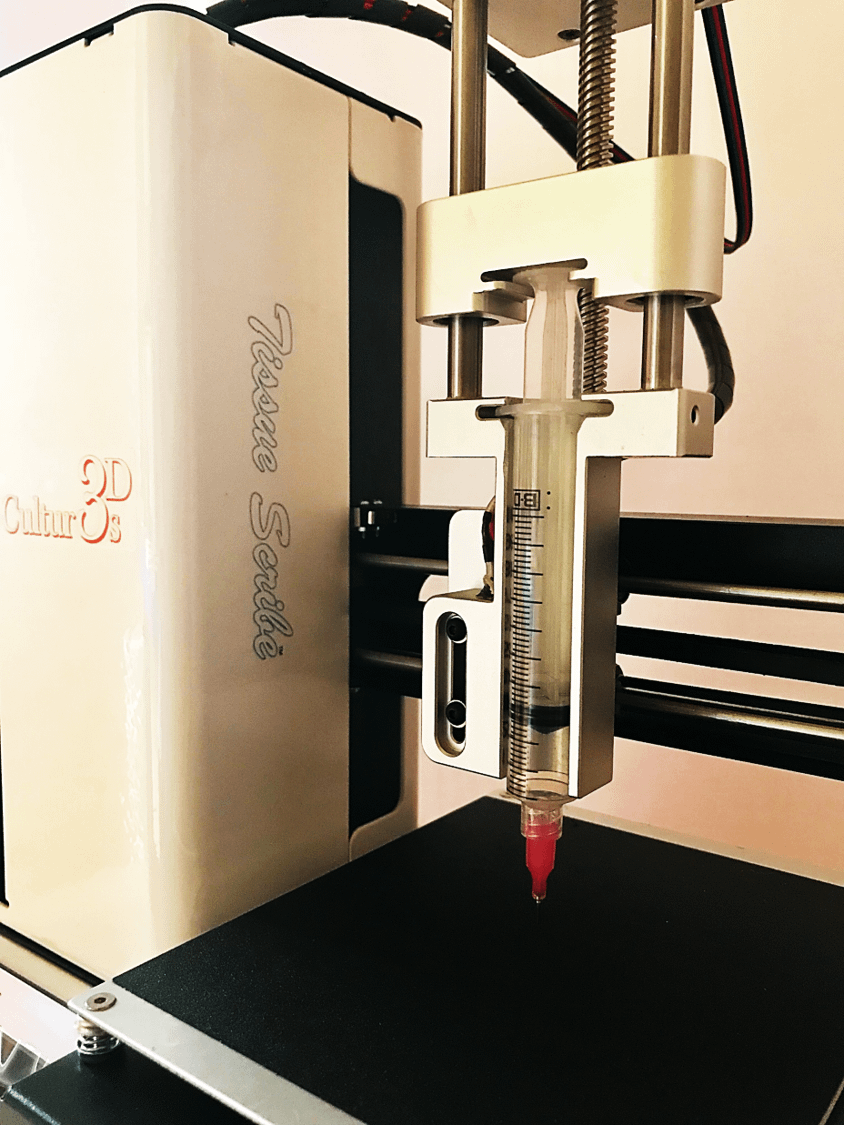| Weight | 16 lbs |
|---|---|
| Dimensions | 18 × 14 × 12 in |
Tissue Scribe (1mL Nozzle)
$2,998 Original price was: $2,998.$2,498Current price is: $2,498.
The 1mL Version is developed specifically for users that are printing small quantities of materials and cells. Sometimes less than 1mL bio-suspension is all that is needed/available, due to high material cost.
As Bioprinters are becoming a necessity in many research laboratories and even in classrooms, 3DCultures, offers the most economical bioprinter for the avid user. We understand that many of us do not need the advanced precision (nanometers) or tons of senors on a printer. A simple printer is sometimes all that is needed!
*Color may vary from images
Description
This printer has a single extruder (bio-head). It uses a standard BD 1mL syringe with interchangeable luer-lock tips. This printer can print a variety of materials including, but is not limited to; gelatin, alginate, chitosan, collagen, etc. The limitation of printing is the material viscosity. Thick materials combined with extremely small tips may prove to be more difficult to print, compared to thinner materials and larger tips. You can print from a Windows or Mac PC using a USB connection or print from 3D model files stored on a microSD card without the need for a computer connection. This printer is easy to use and setup. ADVANTAGES:- Micron scale resolution.
- A nozzle that is available in any biology lab. Yes – this means no extra operating cost to buy new tips every time you need to print.
- A heated nozzle and print bed to maintain a cell friendly environment or to manipulate material viscosity.
- A small footprint for portability and to be placed within the smallest bio-hood for 100% sterile printing.
- Print a variety of cells and biomaterials. If you’re in the biofabrication field, this is a must have!
Specifications
Type: Single Head 3D Bioprinter
Build Platform: Aluminum Heat Bed
No. of Bio-head: 1
Nozzle: 1mL BD Syringe with luer-lock tip (tip size may vary)
Max Print Speed: 20mm/sec (Higher speeds may results in loss of detail)
Print Precision: 0.1-0.2mm (viscosity of material and Nozzle tip size dependent)
Optimal Layer Height: 0.043, 0.087, 0.131, 0.175, 0.218, 0.262, 0.306
Build Size: 100*120*80mm (3.9“ x 4.7” x 3.1“)
Max Hotend Temp: 70°C
Max Bed Temp: 60°C
Precision: X / Y axis 0.1mm, Z axis 0.04375mm
Materials: Hydrogels, anything that can be extruded from a syringe
Connectivity: MicroSD card, Mirco USB connector
Baud Rate USB: Any is okay. 115200 Works without issue. Higher rate should work also.
Display: IPS color LCD screen (non touch)
AC Adapter Input Power: 100 ~ 240 VAC, 50/60 Hz
Input Power: 12VDC, 7A
Maximum Power Consumption: 84W
Input File: GC, GCODE (STL & OBJ files must be converted to G-code)
Compatibility: Windows, MacOS, Linux
Dimensions: (H x W x D) 14” x 11.3 x 7.5“ (356 x 287 x 191 mm)
Max feed rates (mm/s): X150.00, Y150.00, Z1.50, E50.00
Max Acceleration (mm/s^2): X800 Y800 Z20 E10000
Related products
-
Add to cart
This printer has a single extruder (bio-head) [NOT INCLUDED]. It uses any of 3D Cultures printheads/nozzles (cannot be used with the Pellet Extruder Head). This ..
ADVANTAGES:
-
Micron scale resolution.
A nozzle that is available in any biology lab. Yes – this means no extra operating cost to buy new tips every time you need to print.
..
-
Sale!Add to cart
The Pellet Extrusion/Hotmelt version are for users that wish to build with “hard” plastic/polymers. Typically polymers in a powder/pellet form that has a melti ..
As Bioprinters are becoming a necessity in many research laboratories and even in classrooms, 3DCultures, offers the most economical bioprinter for the avid use ..
*Color may vary from images
-
Add to cart
This is the Thermal Base Controller for Pellet Extruder. The Extruder is not included. This is only for the pellet extruder head.
-
Sale!Add to cart
The 3mL Version is developed specifically for users that are printing small quantities of materials and cells. Sometimes 1mL bio-suspension is all that is neede ..
As Bioprinters are becoming a necessity in many research laboratories and even in classrooms, 3DCultures, offers the most economical bioprinter for the avid use ..
*Color may vary from images
-
Sale!Add to cart
The 10mL Version are for users that wish to build larger than normal constructs or an extensive array of samples.
As Bioprinters are becoming a necessity in many research laboratories and even in classrooms, 3DCultures, offers the most economical bioprinter for the avid use ..
*Color may vary from images

















